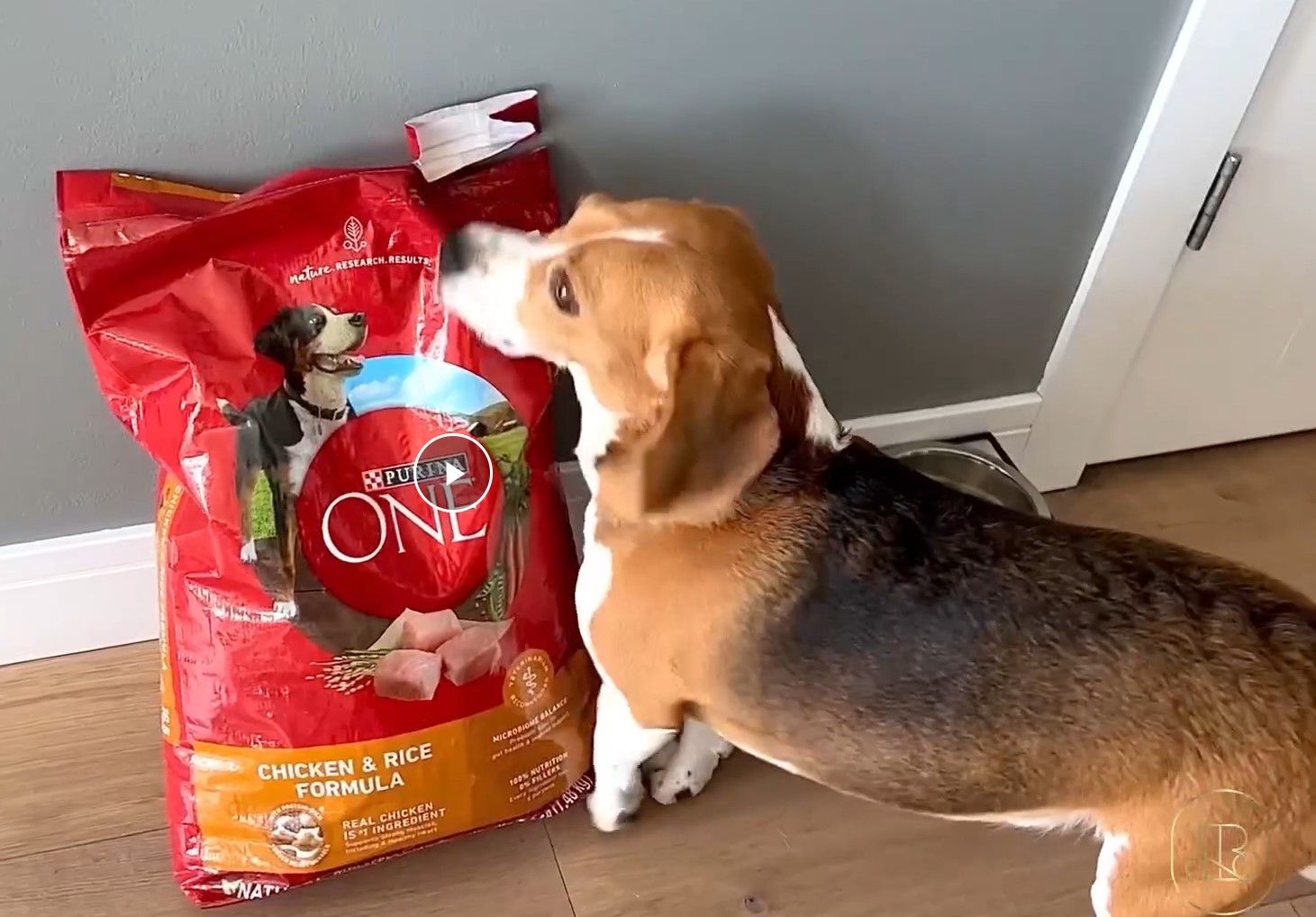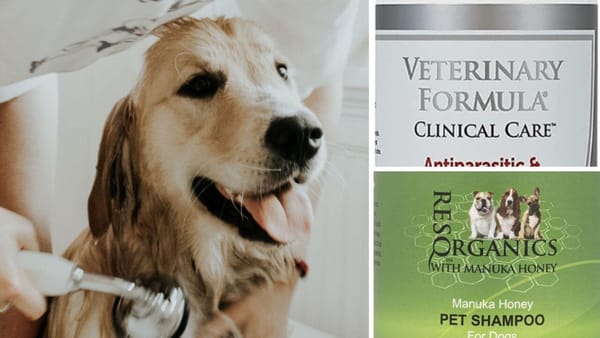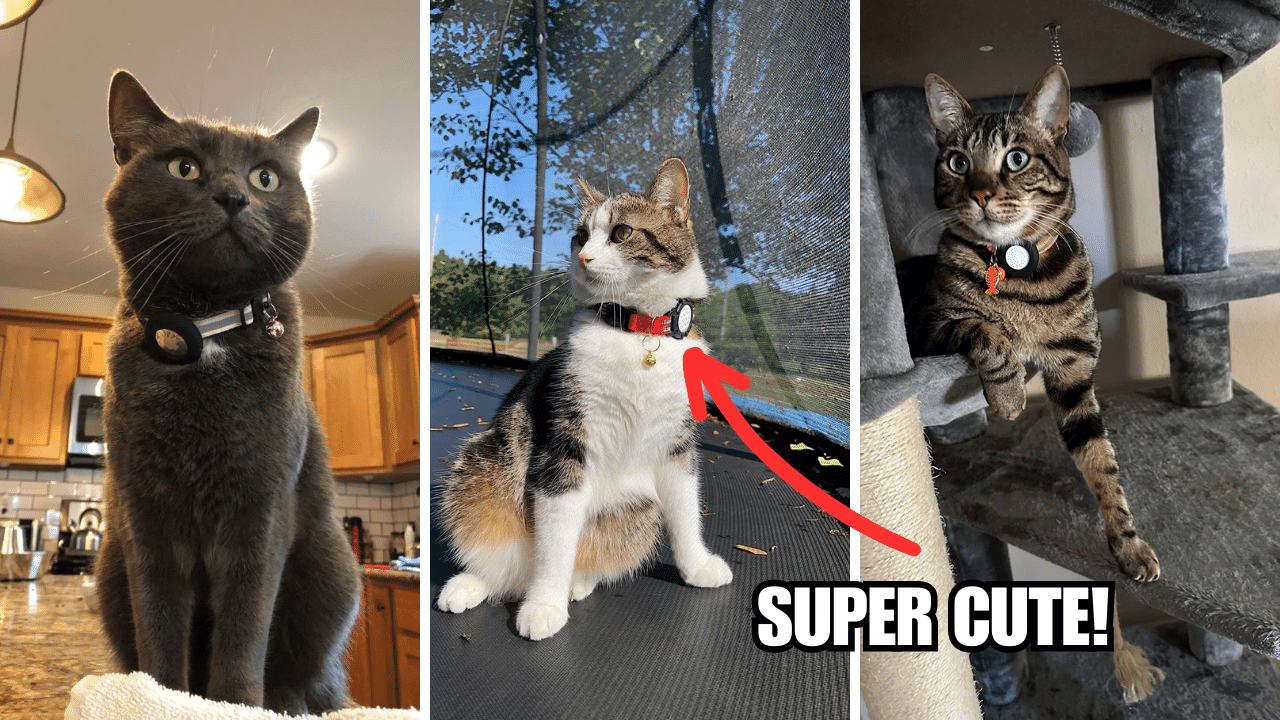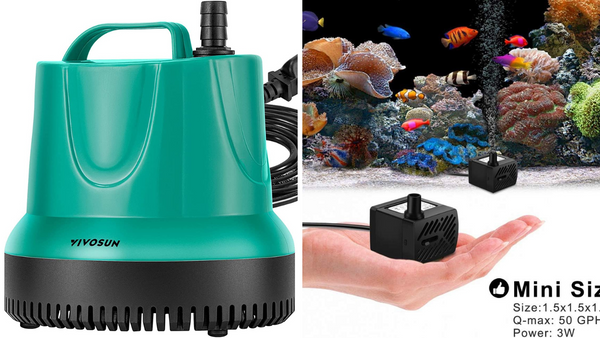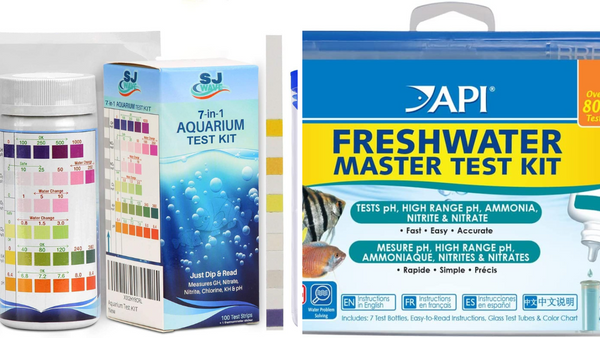Are you looking for the best dog food for your Labradoodle?
Labradoodles are fun-loving, active dogs that need a balanced diet to stay healthy and happy. We understand that you want the best for your pup, which is why we’ve put together a list of the best dog food for Labradoodles.
Our list includes only the highest-quality dog food that’s specifically formulated for Labradoodles. We’ve taken into account the dietary needs of this breed and we’ve included options for all life stages, so you can be sure that your pup is getting the nutrition they need.
This is an article reviewing the best dog food for Labradoodles you can buy on Amazon!
How We Choose The Best Dog Food For Labradoodles
Our team of pet food experts has personally read thousands of reviews on Amazon to find the best dog food for Labradoodles.
You want to feed your Labradoodle the best food, but don't know which one to choose.
It can be hard to find the perfect food for your Labradoodle because there are so many different brands and types available. How do you know which one will give your pup the nutrition they need?
Our team of experts has read thousands of reviews on Amazon to find the best dog food for Labradoodles. We've done all the hard work so that you can easily find and purchase the perfect food for your pup.
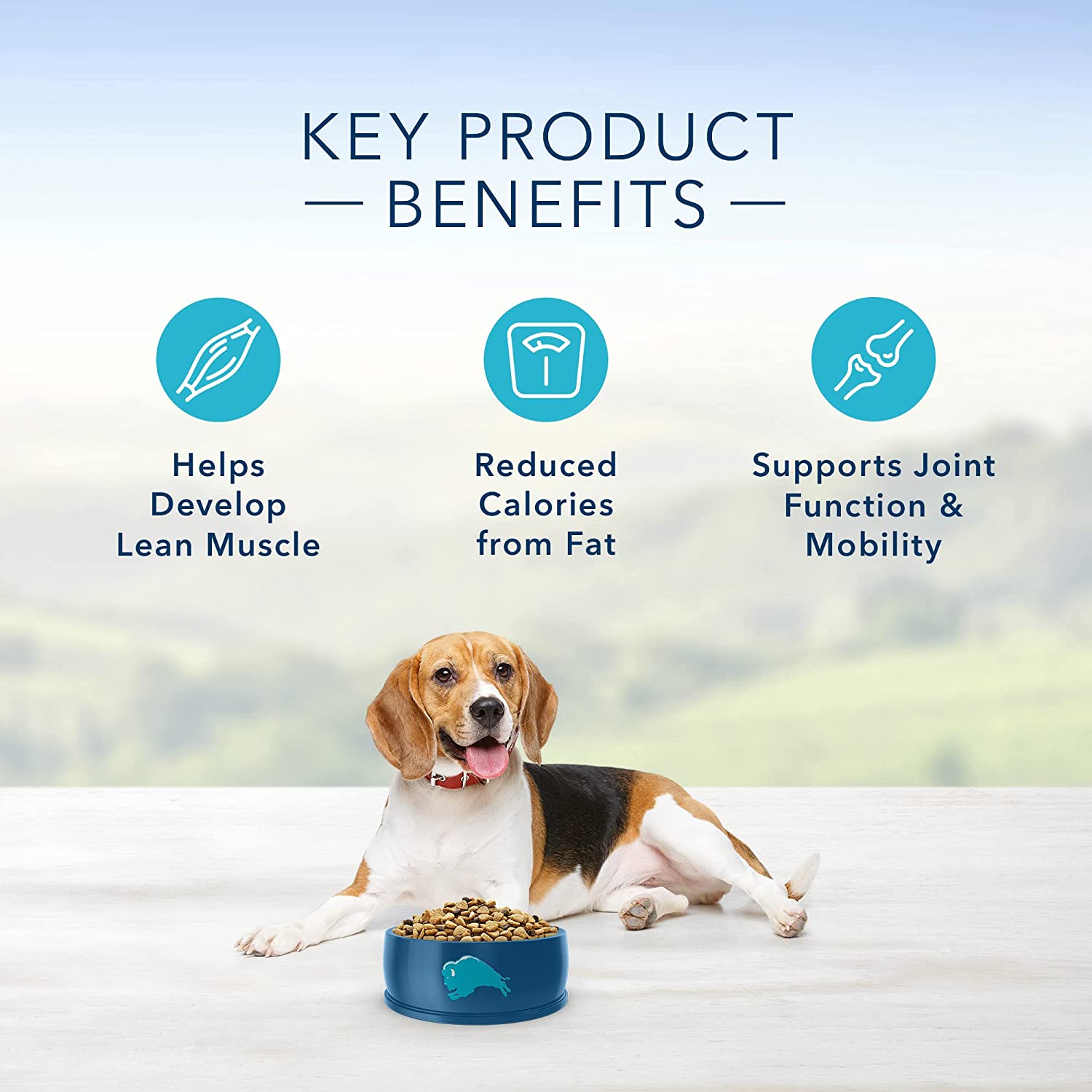
Blue Buffalo Life Protection Formula Dry Dog Food
Helps your dog build and maintain healthy muscles
Blue Buffalo Life Protection Formula Dry Dog Food
Why We Love It
Blue Buffalo Life Protection Formula Dry Dog Food is a great choice for any pup. It is made with real meat as the first ingredient, which helps your dog build and maintain healthy muscles. Plus, it contains wholesome whole grains, garden veggies, and fruit. It is also formulated with reduced calories from fat to help your pup achieve and maintain a healthy weight.
What You Should Know
Blue Buffalo dry dog foods are made with the finest natural ingredients enhanced with vitamins and minerals. It contains no chicken (or poultry) by-product meals, corn, wheat, soy, artificial flavors, or preservatives. It is also grain-free, making it a great choice for dogs with food allergies or sensitive stomachs. It is also a great choice for those looking to switch their pup to a grain-free diet.
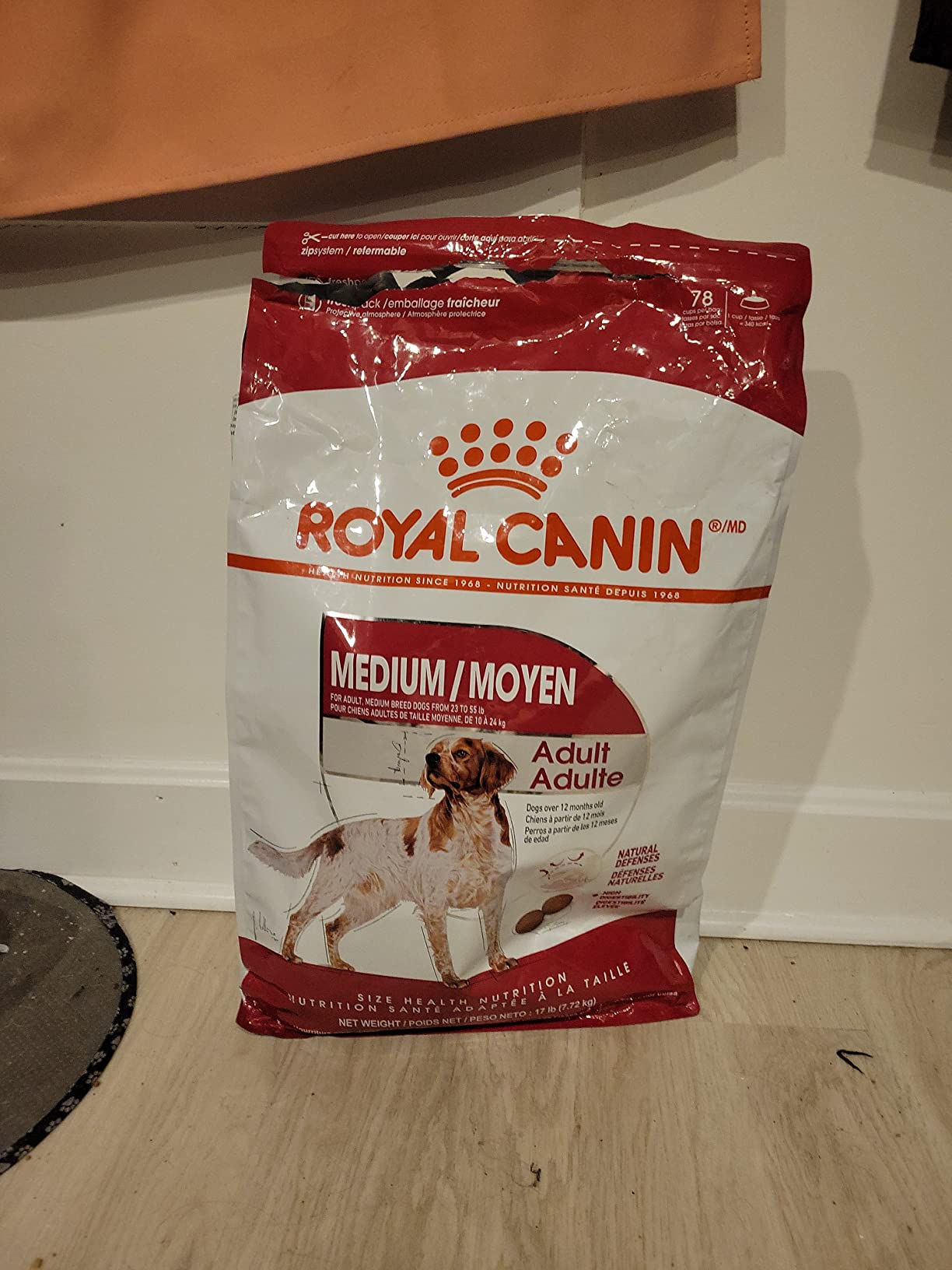
Royal Canin Medium Breed Adult Dry Dog Food
Precise nutrition specifically made for dogs 1–7 years old weighing 23–55 lb
Royal Canin Medium Breed Adult Dry Dog Food
Why We Love It
Royal Canin Medium Breed Adult Dry Dog Food is a great choice for your pup! This nutritious, balanced food is specifically designed for medium-sized dogs aged 1-7 years old and weighing 23-55 lbs. It contains a blend of prebiotics and antioxidants to support natural defenses, optimal levels of EPA and DHA for healthy skin and coat, easy-to-digest proteins, and a balanced supply of fiber for digestive health. Plus, the exclusive kibble design encourages chewing, making mealtime more enjoyable for your pet.
What You Should Know
Royal Canin Medium Breed Adult Dry Dog Food is made with high-quality ingredients, including chicken meals, a grain-free diet, and food allergies. It is free from artificial preservatives and colors and is also free from wheat, corn, and soy. This food is formulated to meet the nutritional needs of medium-sized breeds and is perfect for puppies, adults, and seniors. Plus, it is formulated to provide balanced nutrition for all life stages, so you can be sure your pup is getting the best nutrition possible.
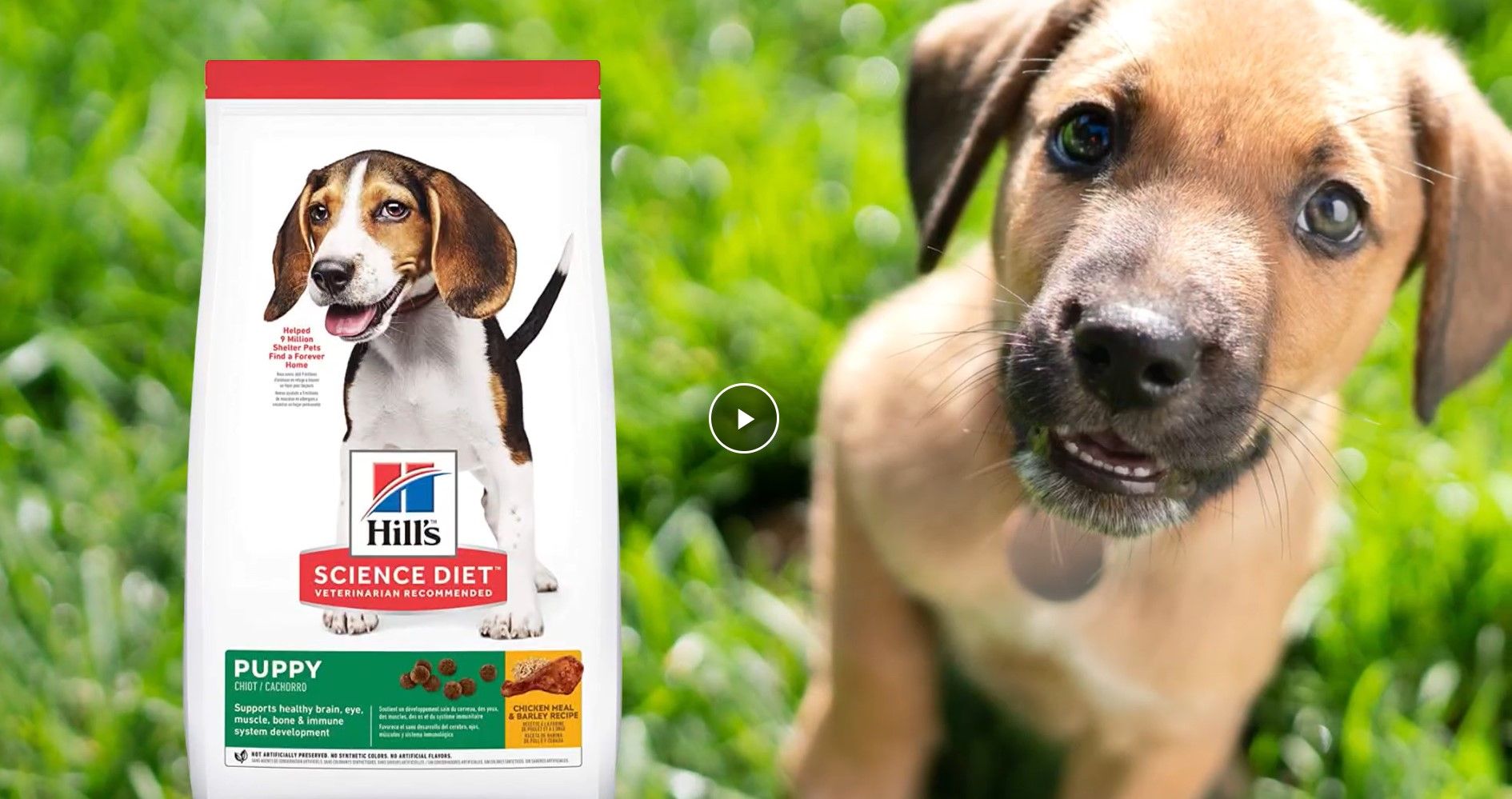
Hill's Science Diet Dry Dog Food
Supports a healthy immune system and overall growth for puppies
Hill's Science Diet Dry Dog Food
Why We Love It
Hill's Science Diet Dry Dog Food is the perfect food for your pup's growth and development. It's made with natural ingredients, and it's formulated to support a healthy immune system and overall growth for puppies. Plus, it provides DHA from fish oil for healthy brain and eye development, and it has a balanced set of minerals to promote strong bones and teeth in young dogs. It's also made in the USA with global ingredients you can trust, and it's veterinarian recommended.
What You Should Know
Hill's Science Diet Dry Dog Food is a high-quality dog food that's made with natural ingredients. It's made with chicken meal as the primary protein source, and it also contains a blend of vitamins and minerals that are essential for your pup's growth and development. Plus, it's made with natural ingredients that are easy to digest and provide your pup with the nutrition they need to stay healthy and active.
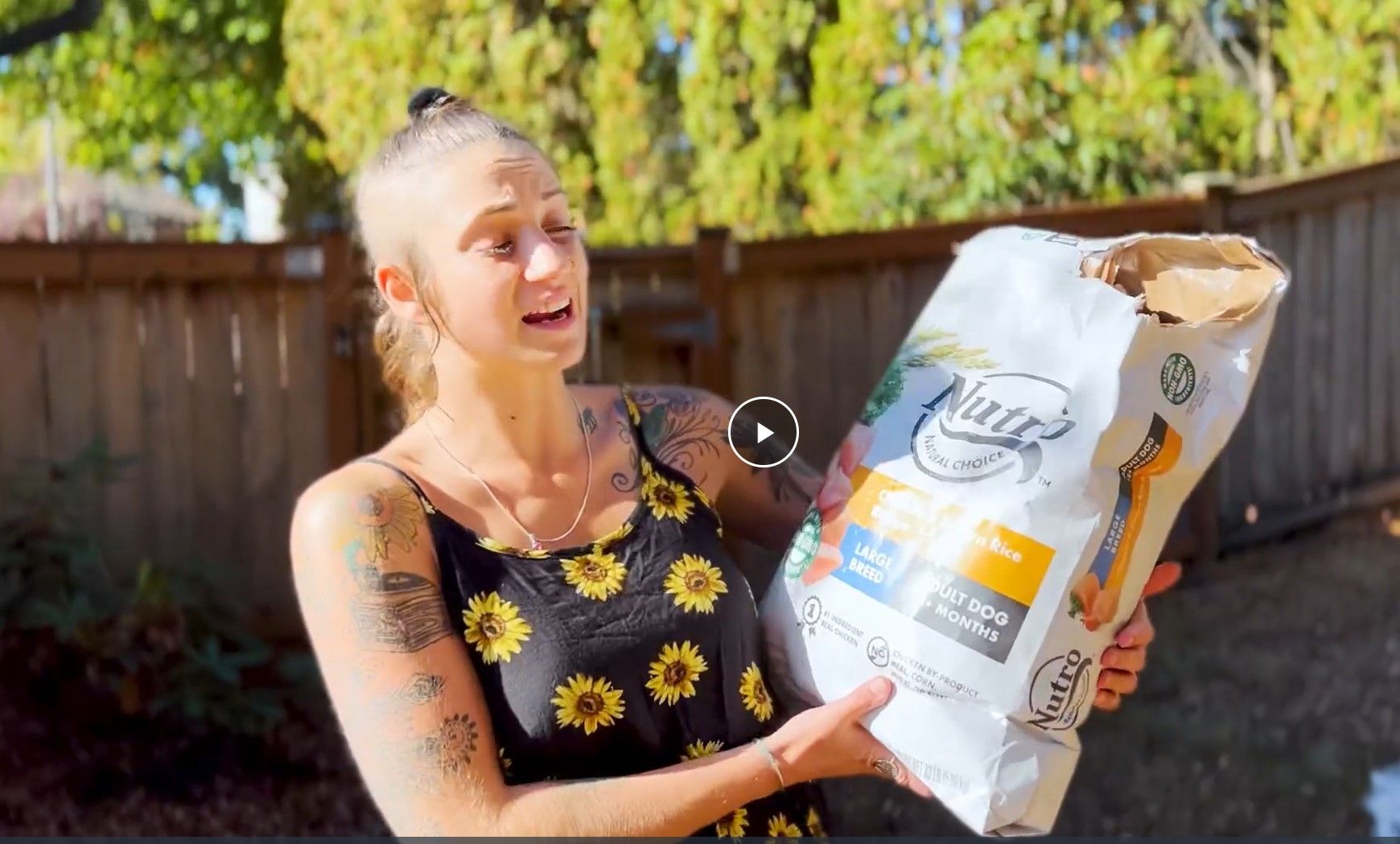
NUTRO ULTRA Adult High Protein Natural Dry Dog Food
Specially formulated for adult dogs
NUTRO ULTRA Adult High Protein Natural Dry Dog Food
Why We Love It
NUTRO ULTRA Adult High Protein Natural Dry Dog Food is specially formulated for adult dogs, providing them with all the nutrition they need to stay strong and healthy. It features a trio of proteins from chicken, lamb, and salmon, with chicken being the number one ingredient. It's made with high-quality ingredients and provides complete and balanced nutrition for adult dogs in every bowl. Plus, it's free from chicken by-product meals, corn, soy, wheat, and artificial flavors, colors, or preservatives.
What You Should Know
NUTRO ULTRA Dry Dog Food is enriched with a blend of 15 vibrant superfoods, such as coconut, chia, kale, blueberries, and other quality ingredients. This premium dog food kibble is designed to provide your adult dog with the protein they need to stay strong and healthy. It's also free from fillers, artificial colors, and preservatives, making it a great choice for those looking for a healthy and nutritious diet for their furry friend.
Purina ONE Natural Dry Dog Food
Why We Love It
Purina ONE Natural Dry Dog Food is the perfect choice for pet parents looking to provide their pup with a high-quality, nutrient-rich meal. This formula contains real chicken as the first ingredient, providing your pup with a delicious and nutritious meal. It also contains prebiotic fiber to help support your pup's microbiome balance and high-quality carbohydrates for energy. Plus, it contains omega-6 fatty acids, vitamins, and minerals for skin and coat care.
What You Should Know
Purina ONE Natural Dry Dog Food is designed to help your pup live up to his full potential. It contains natural glucosamine sources to help promote joint health, and four antioxidant sources to help support your pup's strong immune system. It's highly digestible, so your pup can get the most out of his meal. Plus, it's made without any artificial colors, flavors, or preservatives, so you can feel good about what you're feeding your pup.
FAQ For Best Dog Food For Labradoodles
You want to buy the best dog food for your Labradoodle, but don't know which one to choose.
It can be hard to find the right dog food for your Labradoodle because there are so many different brands and types available. How do you know which one will give your pup the best nutrition?
We've compiled a list of the most frequently asked questions about dog food for Labradoodles so you can know more about these supplements. With our help, you can make sure you're giving your pup the best nutrition possible.
1. What's the best dog food for Labradoodles?
Are you looking for the best dog food for your beloved Labradoodle? If so, then you’ve come to the right place! We’ll be exploring all of the top-rated options that your furry best friend can benefit from. Whether it’s puppy food or raw dog food, there are plenty of nutrition-packed choices out there!
When considering what type of food is ideal for a Labradoodle, you should look into chicken meal and fish meal formulas. Both of these ingredients provide the essential protein and amino acids needed to build lean muscle mass and promote healthy blood sugar levels in dogs. Additionally, they offer healthier fats that can help keep their coats glossy.
But beyond just proteins and fats, how else should one go about selecting quality dog food? Well firstly, always pay attention to the caloric content per cup. Generally speaking, an adult Labradoodle requires around 400-500 calories a day while puppies need slightly more at 600-700 calories per day. Secondly, look at ingredient composition - natural ingredients with vitamins and minerals derived from whole foods sources tend to be favorable options compared to synthetically sourced nutrients or artificial preservatives or flavorings. Thirdly, consider dietary restrictions - if your pup has any particular intolerances such as wheat allergies then make sure the packaging specifies no wheat on its list of ingredients! Lastly (and arguably most importantly), focus on price point versus quality – not all super expensive brands are necessarily going to offer superior nutrition compared to another brand that might cost less but still provides important nutrients for maintaining good health overall in our pup pal friends!
So depending on which specific formulation suits best based upon its nutrient profile as well as any potential dietary restrictions/sensitivities; here are some of our fave Labradoodle Dog Food Brands: Acana Adult Grain Free Dog Food (for adult doggies), Holistic Select Puppy Health Formula (for those little ones); Taste Of The Wild High Prairie Canine Formula (grain free); Merrick Backcountry Raw Infused Dry Dog Food Recipe; Natural Balance Limited Ingredient Diets Chicken & Sweet Potato Dry Dog Food; Blue Buffalo Wilderness Turkey & Chicken Grill Adult Recipe Dry Dog Food…you get it ;) So take some time researching what may be best tailored towards your loyal Labbie's needs before making your final decision when purchasing their next bag o' chow!
2. What are the benefits of feeding my Labradoodle a particular type of food?
Are you looking for the perfect food to feed your Labradoodle? If so, then you are in luck! In this section, we will take a look at the benefits of feeding your pup a particular type of food and why it is important.
First things first, let’s discuss dog food. Dog foods come in all shapes and sizes with different ingredients to suit dogs of any size or breed. It is important to understand that not all dog foods are created equal and there can be major differences among brands. This is why it becomes even more important to choose the correct food for your Labradoodle specifically - one that provides them with adequate nutrition tailored just for them!
One ingredient commonly found in high-quality puppy foods is chicken meal. Chicken meal offers an excellent source of protein which helps keep both weight gain controlled while also maintaining muscle growth and development after exercise. Additionally, the chicken meal contains vital vitamins such as Vitamin A which helps support strong bones and joints; B Vitamins which aid in providing energy; and fatty acids which help promote healthier skin & fur coat as well as improve overall digestion health!
For those with Labradoodles who have sensitive digestive systems or allergies, finding the right type of food can be extra difficult because they often require greater attention when it comes to their diet than other breeds do – this means less processed foods or those containing grains could be beneficial options if needed (so long as no animal proteins are present). For example, grain-free puppy products that contain natural sources like sweet potatoes - provide a great alternative for pet owners looking for quality nourishment without having to worry about their pup experiencing gastric distress due to allergens.
Overall, when deciding on what type of food you should feed your Labradoodle - whether grain free or otherwise - always make sure you read labels carefully so that you know exactly what ingredients each product has. With quality ingredients such as organic chicken meal available in varieties out there these days tailored specifically towards puppies choosing the best option isn't hard at all – ensuring only the best goes into keeping your beloved companion happy & healthy!
3. How often should I feed my Labradoodle?
If you've just brought home a Labradoodle puppy or adopted an adult dog, you're probably wondering how often to feed them. Well, we can help! We’ll break down everything that goes into feeding your pup and give some general guidelines for how much and when to feed your beloved Labradoodle.
First things first: there is no one-size-fits-all answer for how often to feed a Labradoodle. It depends on the size of the pooch, age, activity level, and health status—even individual metabolic rates play a role in determining the frequency of meals. That said, here are some general rules of thumb:
Puppies: Most veterinarians recommend puppies be fed three times a day and spacing their feeds evenly throughout the day (so each meal should be about four hours apart). As they reach six months old their metabolism starts slowing down and they need fewer calories overall so it may make sense to switch them to two meals per day at this stage.
Adult Dogs: For most adult dogs two meals per day spaced out by 12 hours usually works best as digestion slows with age requiring more time between meals compared with puppies who quickly metabolize their food for useable energy faster! If your lab is active or overweight consider spreading those feeds out even further—some say up to 16 hours apart if necessary! Both regularity & consistency are key components when it comes to establishing good eating habits & maintaining healthy weight levels over time
What Foods To Feed Them?: Your lab will benefit from foods made specifically for Labradoodles as these will include only nutrient sources beneficial to them (plus omit any ingredients they could suffer allergies or sensitivities to!). Make sure whatever kibble you choose has enough protein coupled with Omega 3 & 6 fatty acids – this combination helps keep joints lubricated while also promoting skin health in addition to providing important vitamins/minerals needed daily! Always consult your vet before switching foods so that he/she can make specific recommendations based on breed type + dietary needs...no matter which formula was chosen to remember portion control always applies–it's easy to overfeed our furry companions without realizing (especially using high calorie treats like cheese/peanut butter)! In conclusion, hope these tips help give you all peace of mind next time feeding fur baby :)
4. What are the best foods to avoid feeding my Labradoodle?
When it comes to feeding your Labradoodle, there are certain foods that you’ll want to avoid! While Labradoodles differ in size and health requirements, some of the best foods to avoid include processed dog food, puppy food not specifically designed for Labradoodles, fatty table scraps, and foods they may have sensitivities to.
Generally speaking, dry kibble is a great source of nutrition for your pup. Look out for brands that are specific to labradoodles so you know their nutritional needs are met. Most quality dog foods will contain lean proteins like chicken as well as omega fatty acids which provide essential vitamins and minerals for your pup. If you plan on cooking homemade meals for your pup make sure not only are all ingredients non-toxic but also balanced with appropriate amounts of vitamins and minerals. Whatever type of food you end up choosing it’s important to follow the manufacturer's instructions carefully when preparing any meal or treat for them!
6. What are some of the best ways to make homemade dog food for Labradoodles?
Is your beloved Labradoodle ready for a homemade diet? Preparing homemade meals for your pet shouldn't be intimidating - with the right ingredients, this can be an easy way to provide your pup with delicious and nutritious food. But before you start cooking up meals in the kitchen, it's important to understand what types of foods are best suited for Labradoodles.
When it comes to dog food, quality is key! Make sure all the ingredients you use are high-quality and have been pre-approved by a veterinarian or nutritionist. Also, look out for grain-free formulas with fewer fillers and more wholesome ingredients like fresh fruits and vegetables. Generally speaking, when creating homemade meals for dogs, lean meats such as chicken or fish should make up about 50% of their meal plan - try boiling these meats in plain water rather than adding spices and oils!
Labradoodles often suffer from food sensitivities due to a genetic predisposition that requires extra attention when preparing their diets at home. Avoid using beef altogether since this protein is quite common in commercial dog foods which can trigger skin allergies in some dogs. Instead, opt for lean proteins like turkey breasts or salmon fillets (for omega fatty acids) but avoid livers unless they're used sparingly! You also want to keep dietary fats at around 10%-15% so try to pair lean proteins with leafy greens such as spinach which is packed with vitamins A & C plus fiber that aids digestion. Finally don’t forget to add healthy sources of fat such as olive oil (1 teaspoon) or cooked chicken fat (no more than 1 teaspoon).
With proper planning, feeding time can become something both you and your pup enjoy together - think outside the box while staying true to good nutrition guidelines so that you can make every mealtime special!
8. How can I tell if my Labradoodle is getting enough nutrients in their diet?
When it comes to keeping your Labradoodle in peak condition, it’s important to make sure they are getting all the necessary nutrients in their diet. While looking for food for your pup, there are a few things you need to consider.
First up is considering the type of food you should be giving them; pup foods, adult dog foods, and specialized labradoodle dog food are available on the market. It’s important to research the nutrition content of each before picking one - checking that they cover all essential vitamins needed by a puppy or an adult dog is key.
It’s also essential to think about any potential allergies or sensitivities your Labradoodle may have when choosing their meals - certain proteins such as chicken fat can often cause allergic reactions in some dogs so keep an eye out for these ingredients and switch up if needed! Additionally, wet foods tend to have more protein than dry kibble and can provide enough variety between meals - just remember if switching from wet to dry or vice versa too quickly can upset your pooch's tummy due to drastic changes in nutrient amounts!
Overall, try researching which types of diets would be most suitable for your size and breed of yours as different pups need different levels of nutrition depending on age, activity level, or health issues. With careful consideration towards what goes into their meals, you'll soon find it easy to recognize whether your Labradoodle's getting enough nutrients!
10. What are some of the healthiest dog foods for Labradoodles?
Labradoodles might be one of the cutest pups around, but that doesn't mean you can skimp on their health! Here are some of the best dog foods for Labradoodles to keep your pup in tip-top shape.
First and foremost, it's important to remember to look for puppy food specifically– some foods are only suitable for adult dogs and puppies need higher levels of key nutrients like protein and fat. Chicken liver is a great option as it contains lots of vitamins and minerals, plus essential fatty acids.
Wet food is another solid choice – make sure there are whole pieces of meat so your pup can get enough proteins. A diet with sweet potatoes should also be included as they have a wide range of vitamins and antioxidants that help support a healthy immune system. Some turkey meal options provide calories from lean sources while still offering plenty of taste your pet will love!
Finally, always read labels carefully so you know exactly what goes into each bowl. In addition to looking at the ingredients list, bear in mind that not all brands use high-quality plant-based products or meats – make sure you select an option that uses natural ingredients whenever possible. High-quality proteins are essential for keeping your Labradoodle feeling its best over time!
12. What are some of the best foods to feed my Labradoodle if they have allergies?
Trying to find the best foods for your Labradoodle if they have allergies can be tricky, but with a few tips and tricks, you can get your pup on an allergy-friendly diet that won’t hurt their health or wallet.
The first thing you should do before introducing any new food into your Labradoodle's diet is to consult with a veterinarian. A vet can guide you through different options for food and give advice about what ingredients are best for dogs with allergies.
Next, look at the ingredients in both puppy foods and wet foods to make sure there are no potential allergens present in them, like wheat or soy. Some brands even offer hypoallergenic formulas that contain fewer allergen-prone additives. Also, look out for natural preservatives like garlic powder or rosemary extract since these can sometimes cause allergic reactions in some dogs.
If possible, try finding organic dog foods as well since this will likely have fewer fillers or chemicals which could exacerbate any allergies your pup might have. Sweet potatoes are also an excellent source of carbohydrates for Labradoodles and other animals who may suffer from sensitivities due to grains, so try including some of those in the mix! Additionally, adding some healthy fats into a dog's diet such as salmon oil helps keep their coat shiny while also providing Omega 3 fatty acids which promote good joint health - something important, particularly in older Labs!
Finally, remember that puppies often require multiple feedings throughout the day unlike adults so make sure they don't miss out on any necessary vitamins and minerals while adjusting to this new nutrition plan by introducing it slowly over time; when switching up diets too quickly it can result in digestive issues like nausea or diarrhea so always ease into it gradually! With these tips, hopefully, you'll soon be able to find just the right labradoodle puppy food that works well with their allergies & keeps them healthy & happy!
13. What are some of the best foods to feed my Labradoodle if they have sensitive stomachs?
If you’re a proud pet parent of a Labradoodle, you know their stomachs can sometimes be sensitive. While all dogs need to eat nutritious food in moderation, there are some special measures you should take if your pup has especially sensitive digestion.
First and foremost, the best way to feed your Labradoodle is with wet food—not dry dog food alone. Wet foods contain more moisture than dry kibble does, and having plenty of water in their diets will keep them hydrated while aiding healthy digestion. Look into brands that offer innovative wet formulas tailored specifically to Labradoodles; they’ll come packed with essential vitamins and minerals essential for boosting fur, skin, and muscle health.
If you choose to give your pup dry food as well—which is totally fine if done in moderation!—there are options designed for pets with sensitive stomachs too. To maximize nourishment potential look for grain-free or low-grain formulas specifically made for puppies; these will provide optimal nutrition without risking digestive problems due to large amounts of carbohydrates or allergens found in many commercial brands.
The most important thing though? Consult your vet before making any big changes regarding what you feed your Labradoodle! They’ll be able to guide you on how much exercise they need, how often they should eat (and what kind) so that maximum nourishment benefits are achieved without endangering their tummies' sensitivity. Good luck!
14. What are some of the best foods to feed my Labradoodle if they are picky eaters?
Do you have a picky Labradoodle on your hands? You’re not alone! Many Labradoodles can be fickle when it comes to mealtime. Fortunately, there are plenty of delicious and nutritious options for picky eaters.
First things first: wet food is your best bet for a picky Labradoodle. Wet food is high in moisture content and easier to digest than dry kibble, making it more appealing to finicky palates. If you have a labradoodle puppy, try getting some wet puppy food specially formulated for their dietary needs.
Free-drying dog foods might also work if your pup is a particularly picky eater. Free drying means that the production process doesn’t involve any grains or other fillers—just the real ingredients that keep your pup strong and healthy! Look for free-dried options formulated with healthy proteins like chicken or turkey as well as fruits and vegetables rich in vitamins and minerals necessary for proper growth and development.
Finally, make sure to look out for any potential digestive issues in order to help keep digestion running smoothly with every mealtime treat! Low-fiber diets tend to be easier on sensitive stomachs so try finding foods made specifically with those needs in mind—such as grain-free dry dog food —to ensure meals full of energy without unnecessary issues along the way!
15. What are some of the best foods to feed my Labradoodle if they are overweight?
If you have a Labradoodle puppy that’s starting to pack on the pounds, there are some tips and tricks to make sure they stick to their healthy weight!
One of the best ways is with free dry dog food. This type of food provides the necessary nutrition for your pup without packing in too many calories. It contains enough protein, carbohydrates, and fat that provide your pet with everything they need. Plus, it's easy on your pocketbook!
If you opt for grain-free dry dog food as a healthier option, it can help ensure your pet's digestion is working how it should since these foods don’t contain any unnecessary ingredients or fillers. However, if you choose this route, make sure the food still has all of the nutrients needed for an active lifestyle – this means plenty of vitamins and minerals along with healthy fats!
For those times when only canned dog food will do (think picky eaters), look out for high-quality brands that are low in sugar-based fillers like molasses or corn syrup. These added sugars might taste good but over time can contribute to extra calories being added to his daily diet – not what we want when trying to keep our pups at their ideal weight levels! Make sure you also check out reviews from other people who have bought similar products so that you know exactly which brand offers quality ingredients without skimping on nutrition.
Finally (and most importantly!), as always be sure to monitor portion sizes and treat sizes as well as overall activity levels while managing diets – no matter how nutritious their meals may be – because that's just as important in helping them maintain a suitable weight level - one happy Labradoodle is worth three heavy ones after all :-)
16. What are some of the best foods to feed my Labradoodle if they are underweight?
If you’ve got a Labradoodle that is underweight, then you might be asking yourself what are the best foods to feed them. As experienced dog owners know, having a healthy diet for your pup is essential for their wellbeing and digestion. Thankfully there are plenty of great options when it comes to finding the right food!
One type of food that many Labradoodles love is grain free recipes. Grain free foods contain fewer carbohydrates than regular kibble and can help keep your pup satisfied without giving them too many calories. Not only that, but they can provide essential nutrition like antioxidants and fatty acids which will keep your dog's immune system strong and help promote weight gain too.
In addition to grain-free recipes, try adding some lean proteins like poultry or fish into your Labradoodle’s diet as well. Lean proteins are an excellent source of energy that can help build muscle mass which in turn helps increase weight gain in pups who need it most! Just make sure whatever protein you choose has no added preservatives or fillers so that your pooch gets all the nutrients needed for good health.
Finally, don't forget about fruits and veggies when looking for ways to feed a Labradoodle who needs additional calories as well! Fruits such as apples, bananas, melons and blueberries provide loads of vitamins A&C while also offering valuable fiber content too - both important elements in any proper diet plan! Vegetables on the other hand are chock full of minerals like magnesium & zinc crucial for healthy bones & joints - both key components if you want an active pup with plenty of pep & vigor again!
To sum up: If your Labradoodle needs extra calories be sure to include more lean proteins into their diet along with quality grain-free recipes providing essential nutrition plus beneficial fruits and vegetables packed full of vitamin A&C plus minerals including magnesium & zinc; doing this will get those extra pounds back on track quickly so everyone's happy again soon enough.
17. What are some of the best foods to feed my Labradoodle if they have a lot of energy?
If you’ve got a Labradoodle pup with lots of energy, you’re in for a wild ride! But before you settle in for that ride, it's important to ensure your pup is getting the best nutrition possible. It can be tough figuring out what to feed your energetic dog—so don't worry, we've got you covered. Here are some of the best foods to feed an energetic Labradoodle so they feel their best and keep up with their high energy levels!
First off, if you haven’t already done so, make sure you go grain-free with your pup's diet. While many processed pet foods contain grains, Labradoodles can benefit from a diet free of those grains since they often have sensitive stomachs. There are plenty of grain-free recipes that are packed full of protein from fish, chicken and other lean sources—an essential component for an active pup. Look for food options made without any artificial preservatives or added sugar as well—that will help promote healthy digestion and keep them feeling satisfied throughout the day.
When selecting food for an energic labradoodle puppy like yours make sure there is real meats at the top of the list (chicken or lamb being prime choices). Not only does this give them that protein kick but it also contains essential fatty acids which contribute towards boosting their immune system and cognitive development too! If there isn't enough natural fat content within that meat, then adding something like salmon or sardines could be great additional sources - both are super tasty too!
No matter how much energy your pup has throughout the day though – don't forget water! Water should always be offered freely on a regular basis during meal times and breaks (and anything else in between) – this ensures your pal stays hydrated during activities such as walks & playtime and prevents potential health issues down the line! As well as keeping fresh water on hand - varied fruits & veg such as carrots/ apples/ cucumbers all make excellent snacks when needing extra fuel.
All in all – If given proper nutrition tailored towards his breed type, activity level, age bracket & specific traits … You'll find yourself the proud owner of one happy doodle who will lead long life full adventures!
Conclusion
It’s no secret that Labradoodles are a popular breed of dog, and with their popularity comes the need for the best dog food for Labradoodles. We’ve looked at five of the top options on the market, and we’ve determined that each one has something unique to offer. Whether you’re looking for a food that’s specifically tailored to your Labradoodle’s needs or a more general option that will provide them with all the nutrients they need, one of these five options is sure to be the perfect fit. So go ahead and try one out and watch your Labradoodle thrive!



